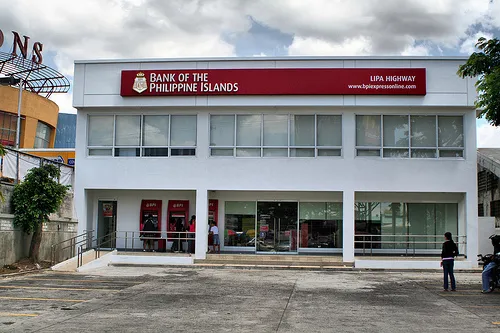
Philippine banks well-positioned to meet the new Basel III requirements
Find out why 2013 will be a good year.
According to a release, Moody's Investors Service has changed the outlook for the Philippine banking system to positive from stable on the combined effects of a strong domestic macro-economic backdrop as well as improvements in the banks' fundamentals, including asset quality, liquidity, earnings and, therefore, capital generation.
Here's more from Moody's:
"The robust and evolving state of the domestic economy will continue to offset any potential weakness in exports," says Simon Chen, a Moody's Analyst. "In particular, household consumption and steady government-led infrastructure spending will support a stable GDP growth rate of above 5%, which will in turn buttress the earnings growth of banks without raising concerns about overheating."
Chen was speaking on the release of a new Moody's report titled, "Banking System Outlook Philippines". The report details Moody's assessment on how the creditworthiness of the country's banks will evolve over the next 12 to 18 months. Prior to today's upward revision, the outlook for the industry had been stable since January 2010.
According to the report, healthy corporate sector balance sheets, a steady inflow of remittances from overseas Filipinos, a nascent but growing household credit market, and low interest rates will fuel domestic business activity and consumption. "Moreover, the country's improved political landscape will boost investor and consumer confidence, as well as business conditions and economic growth," Chen says.
In this buoyant environment, Moody's expects annual credit growth to reach 11%-13% in the next 12-18 months.
Although the level will be slightly lower than the robust 14% recorded so far in 2012, this moderation -- which will arise mainly because of new regulatory measures to tighten real estate lending and raise minimum capital requirements -- is healthy from a bank credit perspective.
Furthermore, the banks are well-positioned to meet the new Basel III requirements, which will be fully effective as of 2014. According to Moody's analysis, even if they maintain their current asset growth and profitability levels over the next 12 months, seven of the eight rated banks would still show Tier 1 capital ratios of 10% or more at end-2014.
Moody's also expects the banks to maintain excess and stable liquidity on their balance sheets over the next 12-18 months. They have a large proportion (over 40%) of total assets in the form of liquid assets, like cash and local government securities, and they have not experienced any difficulty in raising long-term debt or equity capital domestically to fund asset growth.
The rated banks are further likely to maintain good profitability in the coming 12-18 months, despite high infrastructure costs arising from their continued network expansion and mild pressure on net interest margins, due mainly to loans being re-priced faster than deposits in a low rate environment.
Finally, on the issue of systemic support, Moody's believes that the government's improved fiscal strength will add to its capacity to extend support to the banks when necessary.
Moody's rates eight commercial Philippine banks, which together accounted for 63% of banking system assets at end-2011. They have an average long-term bank deposit rating of Ba1, and their bank financial strength ratings (BFSRs) range from D to E.






![Lorem Ipsum [ABF 1]](https://cmg-qa.s3.ap-southeast-1.amazonaws.com/s3fs-public/styles/exclusive_featured_article/public/2025-03/a_hand_pointing_to_a_futuristic_technology_5b87c9d0e3_1.png.webp?itok=2w0y1WhS)


![Cross Domain [Manu + SBR + ABF + ABR + FMCG + HBR + ]](https://cmg-qa.s3.ap-southeast-1.amazonaws.com/s3fs-public/styles/exclusive_featured_article/public/2025-01/earth-3537401_1920_4.jpg.webp?itok=WaRpTJwE)








 Advertise
Advertise

